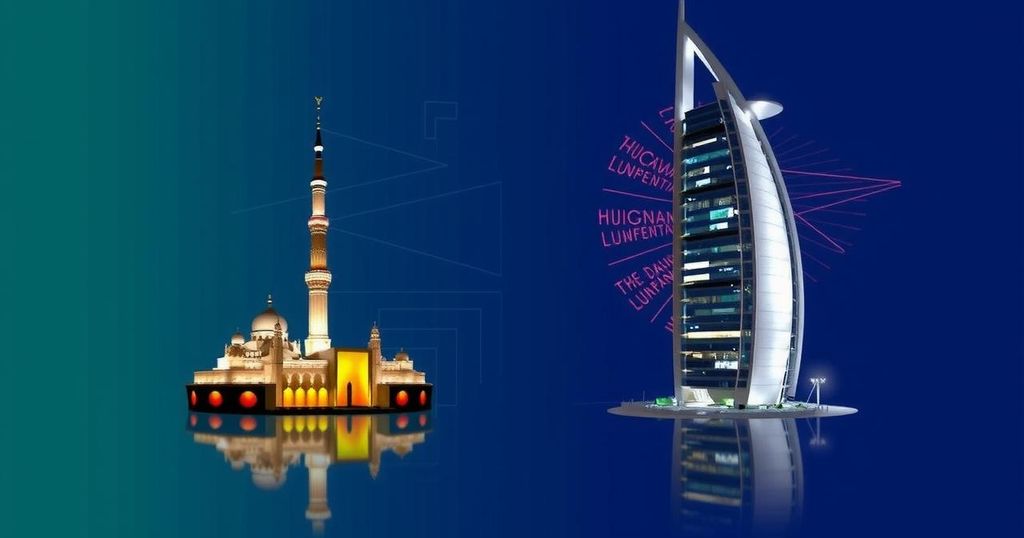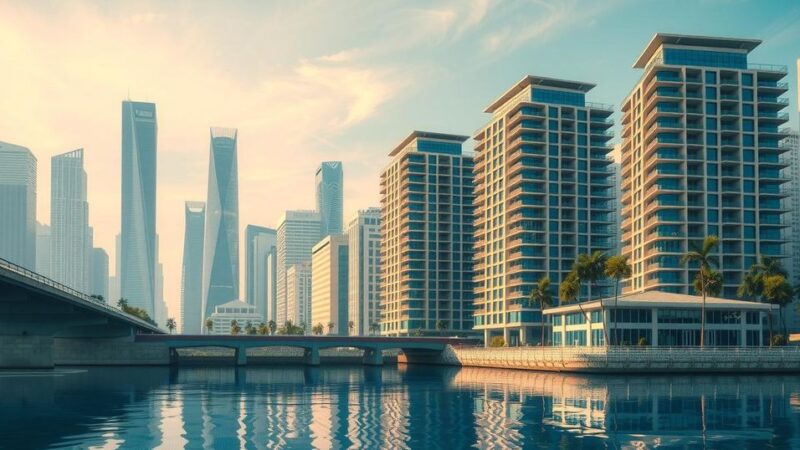Recent investigations reveal that numerous Kazakh officials and their relatives own extensive property in Dubai, which raises questions regarding the legality of these assets. Following the political upheaval in January 2022, the Kazakh government has pledged to address capital flight and enforce stricter asset declaration laws. However, concerns about the transparency and efficacy of these measures persist, particularly regarding high-ranking individuals.
In the context of Kazakhstan’s burgeoning concern regarding the substantial overseas assets of its former officials, particularly in Dubai, questions arise regarding the transparency and legitimacy of these property holdings. Evidence suggests that a considerable number of Kazakh officials and their family members possess real estate in Dubai, a situation illuminated by the investigatory work of RFE/RL’s Kazakh Service and the U.S.-based Center for Advanced Defense Studies (C4ADS). Despite the allure of Dubai as a sanctuary for wealth—attributed to its favorable investment conditions and financial secrecy—the Kazakh government’s stance on asset repatriation remains ambiguous amid resumed efforts against capital flight initiated post-2022 unrest. While approximately 1,550 Kazakh nationals own over 2,700 properties in Dubai, scrutiny has intensified since the passage of new laws aimed at uncovering illegally obtained wealth. Notably, under the administration of President Qasym-Zhomart Toqaev, who has faced pressure for reforms following substantial civil unrest and the subsequent decline of former President Nursultan Nazarbaev’s influence, measures have been adopted to reform the asset declaration processes. Previous attempts to address capital flight have yielded mixed results, with former authorities, notably Nazarbaev, exhibiting a lack of genuine resolve in tackling economic discrepancies. In response to the recent backlash, Toqaev’s government has enacted a universal asset declaration law, albeit the full details regarding asset ownership, especially those belonging to prominent individuals, remain confidential. Some dignitaries defended their Dubai properties as products of previous legitimate success or their spouses’ business endeavors, yet lingering questions about the accuracy of these claims persist—notably how these officials amassed their wealth, given their government salaries. The presence of former officials with significant, undeclared holdings complicates the narrative concerning legitimacy, particularly regarding notable figures such as Qairat Satybaldy, whose prior imprisonment for corruption did not dismantle a reported portfolio of Dubai properties. As Kazakhstan intensifies its investigations into overseas assets, the cooperation with the U.A.E. has become essential, although results have been slow and often submerged beneath layers of bureaucratic opacity. The forthcoming asset declarations slated for more comprehensive release will be a critical moment in determining the integrity of the financial dealings of Kazakhstan’s elite.
Kazakhstan has a long-standing issue with capital flight and the overseas wealth amassed by its officials. The real estate market in Dubai has particularly attracted the attention of Kazakh elites due to the city’s favorable conditions for wealth retention, including financial secrecy and a strong property market. This situation has prompted scrutiny from both the Kazakh government and independent journalists, leading to an investigation into the properties owned by former officials. Following the political unrest of January 2022, there has been renewed governmental commitment to re-evaluate and recover these assets, with new laws being put in place for asset declaration. However, skepticism among the public remains about the government’s capacity and willingness to hold influential families accountable for their overseas holdings, given the historical context of corruption and impunity.
In summary, the issue of Kazakh officials and their property holdings in Dubai epitomizes broader concerns regarding corruption, transparency, and accountability within Kazakhstan’s political landscape. The ongoing investigations and the enactment of new regulations for asset declarations mark a significant yet cautious step toward curbing capital flight and recovering illicit assets. As the government wrestles with pressure for reform, the effectiveness of its strategies to scrutinize the wealth of ex-officials will be vital in restoring public trust and promoting financial integrity.
Original Source: www.rferl.org






